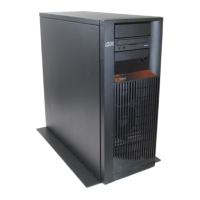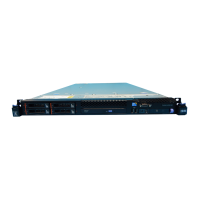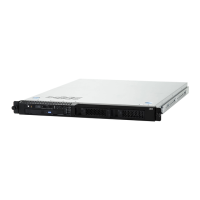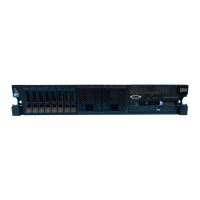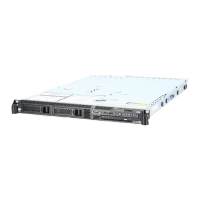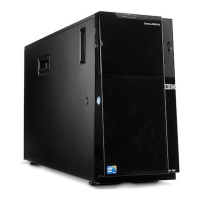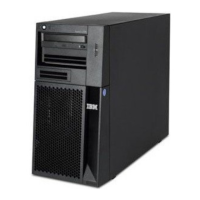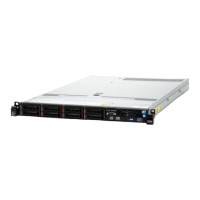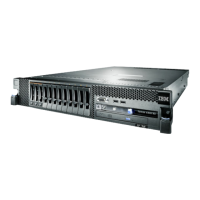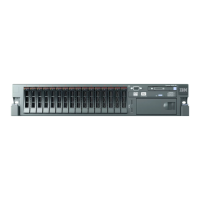customer number, and the device types and their serial numbers. These were
found in step 1 of this procedure. Then inform your next level of support.
Then, go to step 6 of this procedure to clear the cache card and correct the URC
9051 problem.
4. You should install both the I/O card, and the cache cards back into their
original locations. Then re-IPL the system. There could be data in the cache
card for devices in the disk configuration of the original system. After an IPL to
DST and a normal power off on the original system, the cache card will be
cleared. It is then safe to move the I/O card and the cache card to another
location.
5. One or more devices that are not currently part of the system disk
configuration were installed on this I/O card. Either they were removed
concurrently, or they were removed after an abnormal power off, or they have
failed. Go to step 6 of this procedure to clear the cache card and correct the
URC 9051 problem.
6. Use the Reclaim IOP Cache Storage procedure to clear data from the cache for
the missing or failed devices as follows :
a. Perform an IPL to DST (see “Dedicated Service Tools (DST)” in the iSeries
Service Functions information).
If you cannot perform a type A or B IPL, perform a type D IPL from
removable media.
b. Reclaim the cache adapter card storage (see “Reclaim IOP Cache Storage”
on page 947).
7. If this I/O card and cache card were moved from a different location on this
system, go to step 4 of this procedure. If the devices from step 1 of this
procedure are now installed on another I/O card, and they were moved there
before the devices were added to the system disk configuration, go to step 3 of
this procedure. (On an MES, the disk units are sometimes moved from one I/O
card to another I/O card. This problem will result if manufacturing did not
clear the cache card before shipping the MES.) Otherwise, go to step 8 of this
procedure.
8. One or more devices that are currently part of the system disk configuration
are either missing or failed and have data in the cache card. This problem may
be because devices were moved from the I/O card concurrently, or they were
removed after an abnormal power off. If this is the case, locate the devices,
power off the system and install the devices on the correct I/O card. If no
devices were moved, look for other errors logged against the device, or against
the I/O card that occurred at approximately the same time as this error.
Continue the service action by using these system reference codes.
SDIOP-PIP28
Introduction:
Note: Determine if the system has logical partitions. Go to “Determining if the
System Has Logical Partitions” on page 943, before continuing with this
procedure.
Note: If the system has logical partitions, perform this procedure from the logical
partition that reported the problem.
You were sent to this procedure with a unit reference code of 9052.
SDIOP PIPs
Chapter 3. Problem Isolation Procedures (PIPs), Failing Items, and Symbolic FRU Isolation 431
